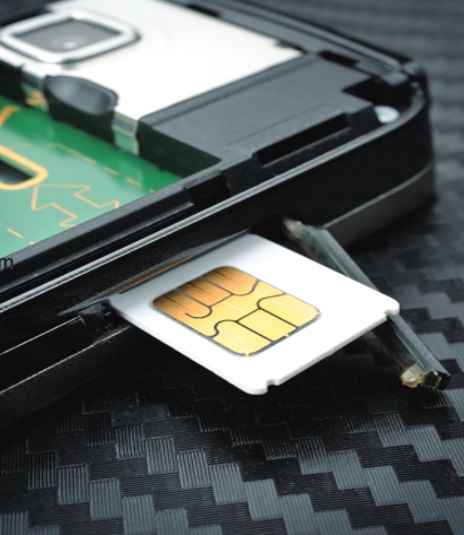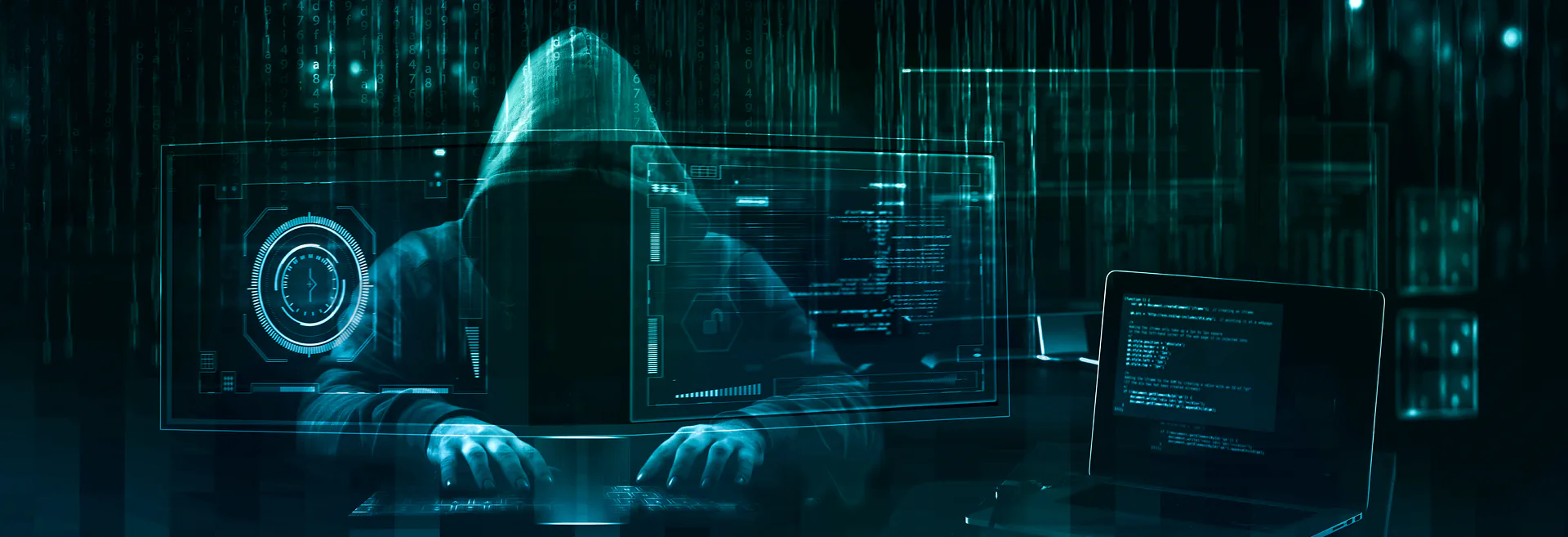Why Choose Dilendorf Law Firm:
1. Shifting the Burden of Proof: Under applicable regulations, banks shoulder the responsibility of proving the authorization of a transaction, regardless of whether you’ve been targeted by a phishing scam, a sim-swap attack, or any other cyber deception. As regulated financial institutions, banks possess a unique capability to shield customers from common fraudulent activities. This responsibility positions you, the victim, advantageously to pursue the recovery of your stolen funds with our legal assistance.
2. Banking Regulations Experience: Our lawyers possess in-depth knowledge of banking regulations and the intricate web of rules that govern the financial industry. We leverage this expertise to craft effective legal strategies that protect your financial interests.
3. Experience in Cybersecurity Regulations: Our lawyers have extensive knowledge and experience in cybersecurity regulations. We understand the intricate web of federal and state laws and regulations governing the digital realm, ensuring you have a dedicated team on your side to navigate the complexities of modern financial crimes.
4. Consumer Protection Advocates: At Dilendorf Law Firm, we are passionate advocates for consumer protection. We understand the emotional and financial toll that financial fraud takes on victims. Our mission is to shield you from further harm and ensure you receive the compensation you rightfully deserve.

Navigating Recovery Through Arbitration:
When pursuing recovery cases against banks, it’s important to note that resolution often occurs through arbitration, specifically through organizations such as the AAA Consumer Arbitrator or JAMS (Judicial Arbitration and Mediation Services).
Our Arbitration Expertise:
At Dilendorf Law Firm, our legal team brings a remarkable depth of experience in this arena. Our lawyers have successfully arbitrated more than 100 cases involving cyber crimes against a diverse range of financial institutions and third-party providers. This extensive track record showcases our commitment to advocating for your financial interests and ensures that you have skilled professionals who understand the intricacies of these proceedings.
We leverage our deep knowledge of cybercrime-related arbitration to craft effective strategies that maximize your chances of recovering your stolen funds. Whether it’s phishing, sim-swap attacks, wire fraud, or check fraud, our expertise in arbitration enables us to secure the best possible outcome for you.
Rest assured that you have a dedicated team ready to stand by your side throughout the arbitration process, guiding you every step of the way. Your financial recovery is our priority.
Common Bank Frauds That Can Affect Consumers Include:

- Phishing Scams: Fraudsters send fake emails or messages posing as a bank to obtain personal information such as account numbers, passwords, and Social Security numbers
- Account Takeover: Hackers gain unauthorized access to a consumer’s bank account and make unauthorized withdrawals or transfers
- Check Fraud: Criminals alter or counterfeit checks to withdraw money from a victim’s account without their knowledge
- Mobile Banking Fraud: Malicious apps or phishing texts trick users into revealing their login credentials for mobile banking apps.
- Online Shopping Fraud: Fraudulent online stores or sellers may steal payment information or fail to deliver purchased items.
- Wire Transfer Fraud/Scams: Criminals pose as trusted contacts or businesses and request victims to wire money, often to foreign accounts, for fake reasons.
- Wire Fraud Scams: The elements of wire fraud under Section 1343 directly parallel those of the mail fraud statute, but require the use of an interstate telephone call or electronic communication made in furtherance of the scheme.
Contact Us:
Contact Dilendorf Law Firm for a consultation if you have been a victim of bank fraud or theft at (212) 457-9797 or via email info@dilendorf.com.
List of Regional Banks in the US That Could Be Vulnerable to Cyber Attacks and Scams:
We stay up to date and track cases involving phishing attacks and sim swap affecting major banks:
Having money stolen directly from your bank account can be stressful by itself, but two Citibank customers tell NBC 5 Responds that once that happened to them, their bank didn’t have their back. They said the bank even blamed them for the crimes and initially refused to refund what was lost.
It’s been a tough couple of years for one North Side man. First, the pandemic shut down his business. Then, when he most needed money, a thief went to a Citibank branch in the south suburbs and stole thousands from his account.
Citibank, one of the biggest 4 banks in the USA, discovered a data breach about a month ago that is said to have affected over 200,000 credit card customers.
Citibank said in a recent statement: “During routine monitoring, we recently discovered unauthorized access to Citi’s account online,” said Citigroup, in a prepared statement. “A limited number — roughly 1% – of Citi bankcard customers’ accounting information (such as name, account number and contact information including email address) was viewed.”
SAN JOSE, Calif. (KGO) — Seven Citibank customers say a combined $600,000 disappeared from their bank accounts. For some, that money represents most of their life savings.
Hackers were able to acquire over 350K customer’s personal data from Citi’s web application. Citi managed over 21M customers when the breach happened. This breach exposed just over 1% of the customer data.
It’s the kind of nightmare most will only read about, but for Jacqueline Berman of NY, it’s actually happening. Over a month ago, her phone was hacked. While she handled the issue with T.Mobile quickly, her bank info ended up being compromised and a hacker was able to get into her Citibank account to assign a new payee. Within minutes, her entire life savings was emptied out.
Several local people say they’ve lost tens of thousands of dollars thanks to fraud on their bank accounts. And they’re not alone. Across the country, scams are on the rise. But unlike credit card fraud where you can usually get your money refunded, these families say they’re furious that their bank won’t help them get their money back.
Six times in 17 days, a Rockland County man says, his JPMorgan Chase bank accounts were hacked and $225,000 were stolen, but Chase has refused to reimburse him for the last $44,000.
David Sabri accused Chase of violating the Electronic Funds Transfer Act, in a March 28 complaint filed in U.S. District Court, White Plains, and is demanding treble damages for his losses.
A cyberattack this summer on JPMorgan Chase compromised the accounts of 76 million households and seven million small businesses, a tally that dwarfs previous estimates by the bank and puts the intrusion among the largest ever.
In one week, the thieves conducted six wire transfers of various amounts, with one as large as $48,000.
While Moss filed a police report and contacted Chase Bank to resolve the issue, after a five-week review, the bank denied her claim and found her at fault.
Imagine money being deducted from your bank account that you didn’t authorize, and you can’t get it back. That’s exactly what happened to a Henderson man after $1,700 was drained from his account. “I got a notice on my phone saying that I had a low balance on my account and when I checked my account, it was $70 in the account, but the night before was $1,770,” Marcus Johnson said.
Hackers have released a database that allegedly contains account details of over 4 million Bank of America customers. The leaked data contains sensitive information such as account balances and card CVV codes.
Picture this: a single mom in Norridge learns someone somehow transferred more than $1,700 from her bank account. Nicole Saez said she got the email notifications last month while she was cleaning her son’s room. “I had nothing left. I think there was $4 left in my savings,” she said.
In February, FinCEN issued an alert indicating that there were 680,000 cases of possible check fraud reported last year, up from 350,000 in 2021, which itself was a 23% increase over reports in 2020. Because FinCEN sees no indication that check fraud is going to subside anytime soon, the agency cautioned financial institutions to be vigilant and, along with the United States Postal Inspection Service (USPIS), warned that the main source of stolen checks is the U.S. mail.
Unemployed workers received their Employment Development Department benefits on Bank of America debit cards — but they were targets of fraudsters who drained millions of dollars from workers’ accounts. Many could not get reimbursed. This year, BofA was fined $225 million for automatically denying their claims.












































